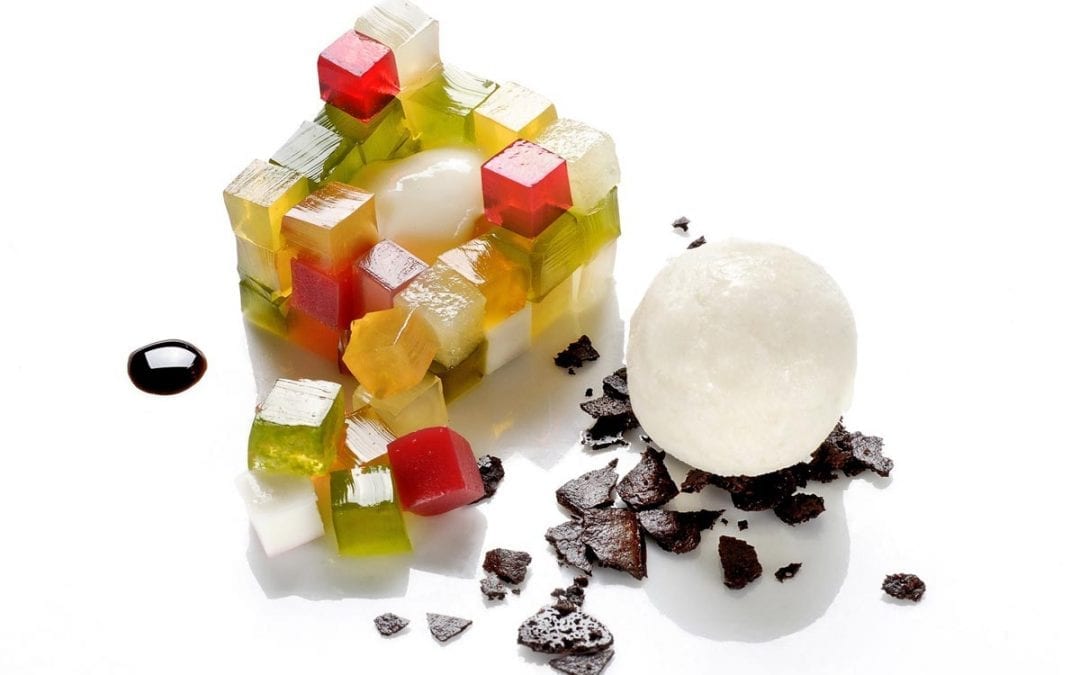This morning I want to spend half an hour of my time to talk about an idea that is very close to my heart. I want to talk about the difference between production cost, real value and perceived value, and how a fourth word creeps into these three concepts: Culture. This article is dedicated to all Culture people who, like me, often find themselves being judged by ignorant people and get a cat that half is enough, just saying.
Let us start with a small glossary in the meantime, i.e. how I understand these three concepts so that we understand each other without misunderstanding:
- PRODUCTION COSTS: this is the cost of the raw material and incidental expenses (electricity, water, gas, management, personnel, rent, investments, accountant...) but necessary to market the product/service.
- REAL VALUE: is the price in money with which we pay for the product/service and is determined, more or less objectively, by the Market.
- PERCEIVED VALUE: is the weight we give to the effort we make to pay for the product/service and is determined, more or less subjectively, by our Culture.
There, with that cleared up we can start. This morning I woke up at 7 a.m. and read this article in Dissapore by Cinzia Alfè entitled: 'Why is spending €300 at Bottura's immoral?' and subtitled: 'let me decide who pays the bill'. I found it a brilliant analysis, which involved me very personally and therefore I wanted to add something here on my blog.
The article starts with this comment:
"The figure is important, certainly. But everyone spends their money as they see fit. For example, I don't conceive of spending hundreds of euros on a handbag, I don't even dream of buying an expensive car, I'm just not interested. I would go to Massimo Bottura's in a hurry, the problem is that no one I know is interested in investing in such an experience'.
And it ends with this sentence from Cinzia:
The price is the value we place on things, i.e. how much of our work, monetised in rustling big bucks, we are willing to sacrifice for the purchase of what we like best: the latest iPhone, a night out, a trip, and yes, even a meal in a gastronomic temple like Massimo Bottura's.
There, of course I agree with this analysis, and as always I enjoy reading Dissapore in the morning. There are, however, a couple of small things I want to point out.
My question is: why is it morally accepted and almost normal for the worker with an average salary (let's say €1,200 per month) to spend €200 on cigarettes per month, while it is the stuff of the sophisticated rich to spend the same amount at Bottura's?
I am sure that if, like me, you love wine and food, you have been told all your life that it is 'fancy' or worse that it denotes a lack of simplicity. Even some people will tell you that they can't afford it. Yes, we are talking about the same people you see with cigarettes in their mouths at all hours, smoking even more than a pack a day for the modest sum of €5 a pack. We are talking about people who spend €150 to €250 per month (i.e. about 1/5 of their salary) and the equivalent of a dinner at Massimo Bottura's, to treat themselves to the experience of lung cancer. Yet for these people, who are actually junkies in withdrawal, those cigarettes with which they slowly kill themselves are worth the €300, while the experience in the temple of cuisine is not.
Yes, I condemn smoking. The reason is simple: I am an ex-smoker. Or an ex-toxic if you prefer. Don't tell me: I know perfectly well what it's like to look for the fix and get nervous until you're sure you've got it in your pocket. And I also know what an effort of will it takes to quit: it's almost 7 years since I quit smoking, and it's definitely the smartest thing I've done in my entire life. I stopped being nervous. I stopped blowing the money I earn. I stopped ruining my health. And guess what? Now I can smell apricot, almond, acacia blossom in the wine... all scents I never even dreamed of smelling before.
But this article is not meant to condemn smoking, but to reflect together on the value we place on things. I believe there are two macro categories of people: those who spend to possess objects and those who spend to have experiences. I believe that the first category of people is mainly made up of the insecure, who do not even buy the object itself but the status that that object gives them. I believe the second category of people is mainly composed of people at peace with themselves who do not need objects to prove their worth.
Having said that, I too like bags of €300 or more. And some, in the course of life, I have even bought myself. But if I am faced with the choice: either the bag or the dinner, I choose the dinner. Of course, someone may object to me that the bag is a 'durable' good while dinner lasts a couple of hours at most, but we both know that the bag is not eternal and that to perform that function it was not necessary to spend €300 but only much, much less. And we also know that today there is this bag, and in a month or two we will want another one.
The problem is that we are children of a consumerist society where we need to quickly satisfy our desires and possess more and more new objects that, just because they serve a purpose, seem indispensable enough to justify the expense.
What about the wine? What about food? Eating and drinking well is often considered something for rich or sophisticated people. Yes, those who have this consideration are the ones who spend €300 on cigarettes, on a handbag, on a motorbike accessory, on a tablet with which they will at most watch 3 videos and share shit on Facebook, on a new phone when the old one worked just fine and already had all the features they could want, and more.
But the really 'serious' thing is not that he doesn't spend €300 at Bottura's, but that he saves 30 cents and buys a low-quality tomato puree at Discount while chatting with his new iPhone 7. And once he leaves the supermarket he lights up a cigarette. Then he calls me sophisticated and tells me that I'm not a simple girl because I only put San Marzano tomatoes from Agro sarnese-nocerino DOP on my pizza, and that he/she can't afford it because it's not in line with his/her possibilities. Then he gets on his new motorbike/machine and heads for a house-catapath.
Yes, because these people are usually the same ones who don't give a damn about the house they live in. After all, the house does not show itself as easily as a smartphone, a handbag or a car. They live in houses that are totally neglected, they complain that their washing machine doesn't work or that their walls are mouldy, the furniture is thrown in from the flea market without an ounce of aesthetic research.
And when I hear one of these people tell me that I am not a simple girl and that they can't afford to spend €50 on a bottle of wine or a dinner in a starred restaurant, or even that it is immoral, I get the famous cat. And he climbs with his little claws on my thighs. And I want to scream, damned if I want to.
Simplicity is not eating and drinking badly because you don't understand shit about what you are eating and prefer to spend 20€ on abundance at the expense of quality. This is just ignorance. Ignorance in the very literal sense, i.e. that one is ignorant of the quality and value of certain experiences. On the other hand, it is immoral to spend €300 per month on 1-2 people on cigarettes (or slots, or other destructive vices), i.e. to spend on harming oneself, certainly not on a culinary experience in the temple of Italian cuisine.
[A CLARIFICATION IS URGENTLY NEEDED SINCE WHEN I PUBLISHED THIS ARTICLE ON A FACEBOOK GROUP THERE WAS A MISUNDERSTANDING! WHEN I MEAN THAT PEOPLE PREFER ABUNDANCE TO THE DETRIMENT OF QUALITY, I'M CERTAINLY NOT TALKING ABOUT TRATTORIAS OR AGRITURISMI THAT MAKE HOMEMADE PASTA, BUT ABOUT THOSE RESTAURANTS THAT GIVE KILOGRAMS OF FROZEN INDUSTRIAL PASTA... AND THERE ARE MANY OF THEM, UNFORTUNATELY!!!]
Then of course, there are also those who cannot afford it, and for these people my reasoning does not apply. But we're talking about non-smokers, non-gamers, who don't change their mobile phones just to have a cooler one, who don't have a tablet just to play games or watch a video, who don't spend money on handbags or designer clothes, trips, motorbikes and accessories etc etc.
For everyone else, the rule applies that everyone spends his money according to his ability to appreciate 'the object' he invests in. And that is just Culture.
And let's be clear that no one here is condemning or judging anyone who spends €1,000 on a handbag, a new iPhone or a motorbike accessory. It's quite the opposite here: you are politely asking not to be judged for how you spend your money. I love to invest money in experiences: food, wine, travel... everything else is secondary for me. I collect orchids and bottles of wine, but these two passions of mine are not visible on the outside and therefore do not denote social status. But then I am also Apple Addicted, I get a manicure every month and I love Louis Vuitton. I simply prioritise.
Here, the choice of these priorities is dictated solely by our Culture. Eating at Bottura's, or whoever's, should not be seen as the fulfilment of a primary need such as hunger, but rather the pleasure of living an artistic experience, just like visiting the Sistine Chapel or listening to a Bach organ concerto. To experience an emotion, in my opinion, is to satisfy a sense and not a need. We can satisfy our sight with a painting, our hearing with a melody, our touch with a hug, our sense of smell with a perfume (or a wine in my case)... why shouldn't we satisfy our taste with an extraordinary food?
The choice to gratify our senses and how we gratify them is only Culture.
The term Culture is derived from the Latin cholera meaning 'cultivate". Everyone chooses what to cultivate in his or her life, one interest rather than another. We are all different, we all like to do different things and it is our diversity that is the greatest source of wealth we have. Diversity allows us to grow, to choose, to admire, to learn, to be.
We all try to conform only in one thing: we always cultivate love and respect for those who are different from us, even if they ignore the pleasure we derive from what we are passionate about.
With affection,
Chiara
PS in the cover photo Camoufage: Hare in the WoodsMassimo Bottura's dish inspired by Pablo Picassowhich saw Cubism in the camouflage colours of a military truck.

